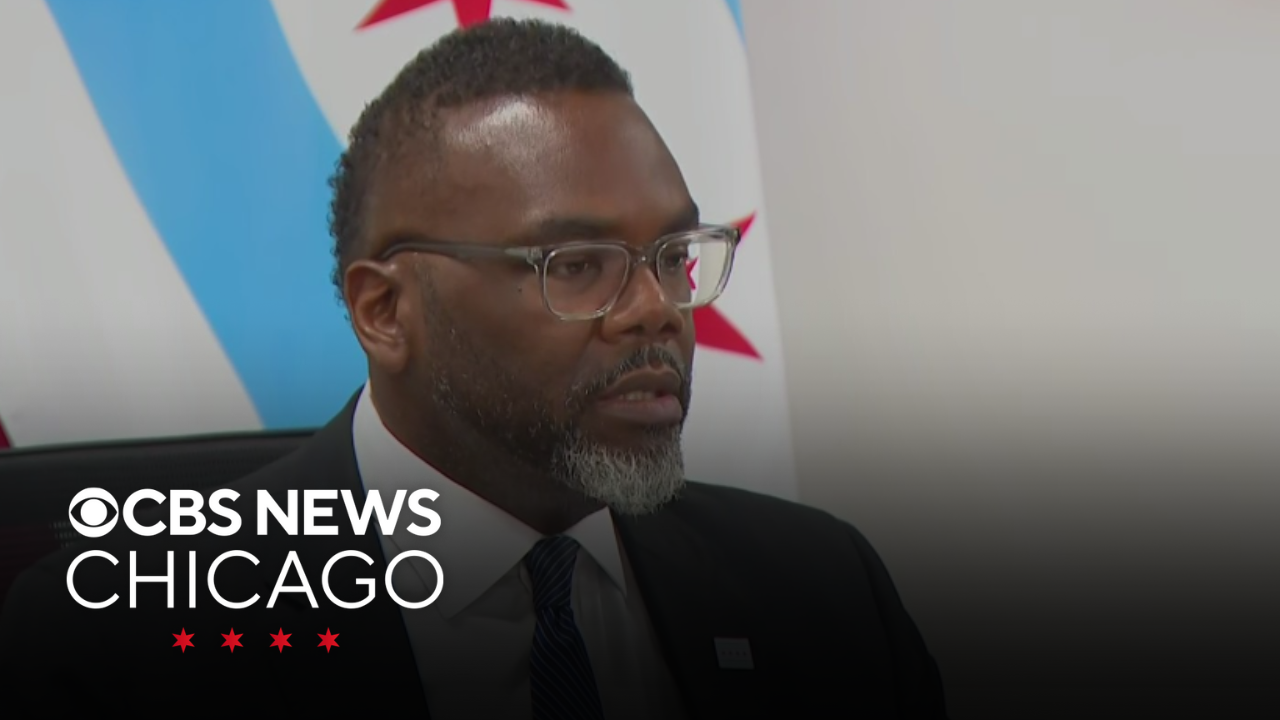Mayor Johnson says there have been "conversations" around tax on wealthy for Chicago transit funding
Chicago Mayor Brandon Johnson said Tuesday that he is hopeful lawmakers in Springfield will reach a transit deal before the Chicago Transit Authority hits a fiscal cliff.
When asked about how to raise revenue, Mayor Johnson suggested a tax on the wealthy.
"There's been some conversations about a millionaires' tax and other forms of progressive taxation that challenges the ultra-rich to pay their fair share," Johnson said. "I think that it's important that, you know, we come up with solutions that are sustainable, and that they don't overwhelm, you know, the pocketbooks of working people."
This past weekend just before a crucial Saturday night deadline, Illinois state lawmakers passed a $55.2 billion state budget plan for the next federal year. But while the Illinois 365bet¹Ù·½ÍøÕ¾ advanced a measure to overhaul and provide hundreds of millions of dollars in funding for the Chicago area's mass transit system, the Illinois House didn't take it up before adjourning its spring session.
Transit officials have said the Regional Transportation Authority system is facing a $771 million budget deficit in 2026, and if state lawmakers don't come up with that funding by this summer, the Chicago Transit Authority, Metra, and Pace must start laying out plans for service cuts of up to 40% for next year.
To fund transit, Democratic lawmakers in Springfield called for a $1.50 tax on deliveries like Amazon, Grubhub, and Uber Eats, a 10% tax on rideshare trips, and add a new tax to charge electric vehicles. A surcharge on tolls has also been suggested.
Mayor Johnson did not comment on the other revenue ideas floated by Illinois lawmakers during eth Spring Session.
While the Chicago area's mass transit systems are funded through the end of the year, and there will likely be a fall veto session that could provide another shot at an 11th-hour rescue, transportation officials said without funding guarantees for 2026 in place by this summer, they'll have to start laying out the specific cuts next week to prepare for any potential service reductions next year.
The CTA has said without the minimum funding it is seeking from the state, it would be forced to eliminate some or all service on at least four of its eight rail lines, close or dramatically reduce service at more than 50 rail stations, and eliminate 74 of 127 bus routes starting next year. The CTA has not yet said which specific 'L' and bus lines and 'L' stops would be affected.
Meanwhile, Metra has said it would have to eliminate all early morning and late evening trains, reduce weekday train service to one train per hour on each route, and cut weekend train service to one train every two hours on each route. Pace would be forced to eliminate all weekend service and all weekday service after 8 p.m.





